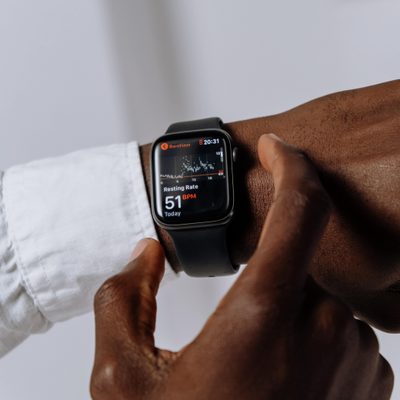Let us do the heavy lifting for you. Contact us today to speak with one of our expert consultants who will match you with the most time and cost effective path to market.

Digital Health or Health Tech is something we’ve been hearing a lot about lately, especially as more and more health professionals are taking their practices virtual during the pandemic. About 15% of the new clients who have joined the RQMIS family in 2020 have products that employ the use of digital health technologies such as cloud-based databases, applications, mobile applications and wearables. Several of these products employ machine learning/artificial intelligence medical device software. These novel technologies improve the delivery, payment and consumption of care with the ability to increase the development and commercialization of medical devices and drugs worldwide.
The onset of COVID-19 and social distancing requirements has driven a widespread shift towards leveraging digital technology in healthcare. Providers are now executing most appointments with their patients using telehealth, virtual care and remote patient monitoring. Doctors, and really the healthcare industry at large, are embracing the idea of remote healthcare when possible in order to limit the spread of COVID-19. What was once a far-off idea in our distant future is now the central means of administering and accessing healthcare worldwide.

Industry Challenges
One of the most talked about challenges to digital healthcare is privacy protection. To be successful, companies must master the delicate balance between preventing or limiting the exchange and distribution of data while simultaneously being sure not to hinder the future of technological development.
Data generation and storage is surprisingly important to the future of Health Tech (software medical devices) and is vital to the continuation of disease prevention solutions, patient communication services and portable consumer technologies. Having an adequate database with the proper security protocols in place and with the possibility of translating to different languages for the world's users is critical to ensure fair access and transparency. Translation is of particular interest since the final hurdle for many of these digital health companies is so grow their business beyond their national borders.
As with any other medical device or drug, manufacturers of these digital technologies need to have an in-depth understanding of the policies and regulations for each country that they intend to sell their product in. Since digital health is a fairly new field, the regulations haven’t been around for very long. This can be both good and bad – on the one hand, regulatory agencies such as the FDA, do not have an extensive background of experience in regulating these types of products, so in a sense companies may be able to forge their own unique regulatory path to market. On the other hand, due to their lack of exposure, the agencies may also look at everything with a fine-toothed comb to ensure nothing falls through the cracks.

How can you combat this risk? Hire a consultant. RQMIS expert consultants are well-versed in the specific regulations that impact your digital health product and know how to navigate through the maze of regulatory agencies. Getting your digital health product approved for sale is a make-or-break moment for your company. After putting in all the hard work to bring your product to life, do you really want to wimp out at the last leg of the race and try to do this yourself? Health-tech companies are generally startups with limited industry experience – these guys are our bread and butter. Working with consultants like us can open the doors for you and clarify the regulatory, legal and commercial frameworks that must be understood in order to get your product on the market and in the hands of consumers.
The Future
There’s no doubt that the field of digital health is growing and its trajectory is bright – industry reports value the sector at over $500B by 2025 with an annual growth rate of almost 30%. The promise of technological innovation comes at a time when the healthcare industry is being called on to respond to the growing demand for resources. The digital health revolution is in a strong position to not only create solutions but to offer them to millions of people around the globe. These new technologies eagerly await a consensus on unified regulations, at least among the world's major healthcare systems, but for that we will have to wait. Until then, contact one of our regulatory professionals to help you get your digital tech product on the market.